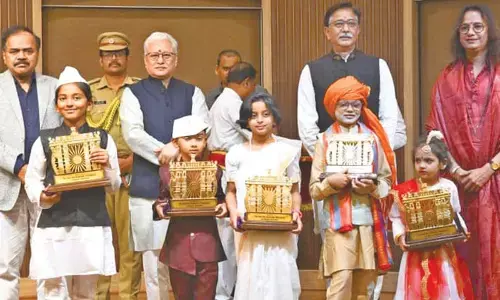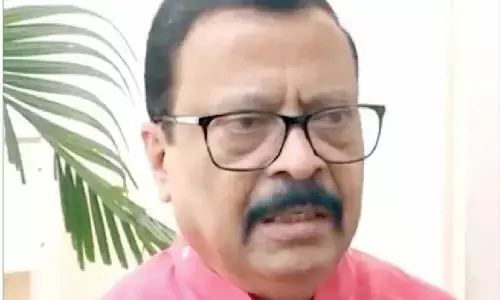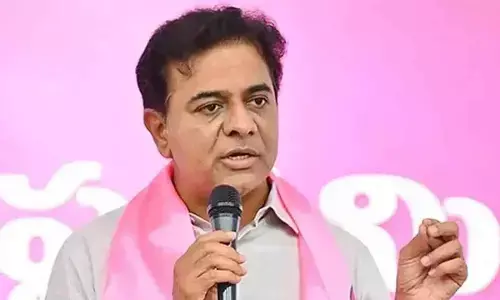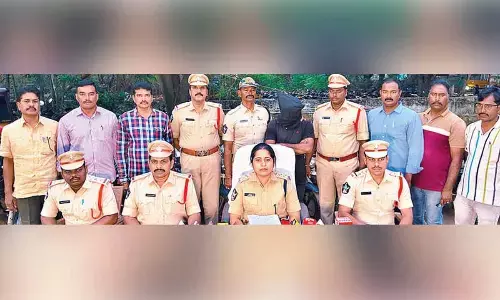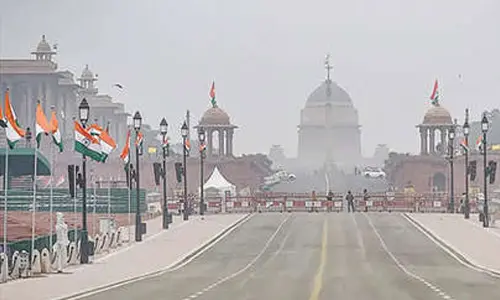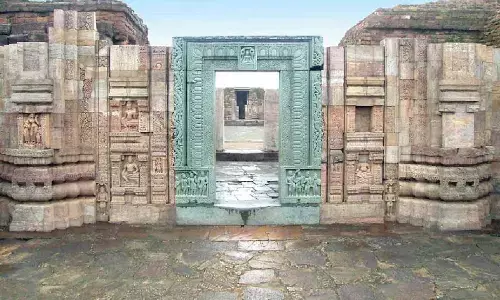Cosmetic changes at CBFC change nothing
Share :
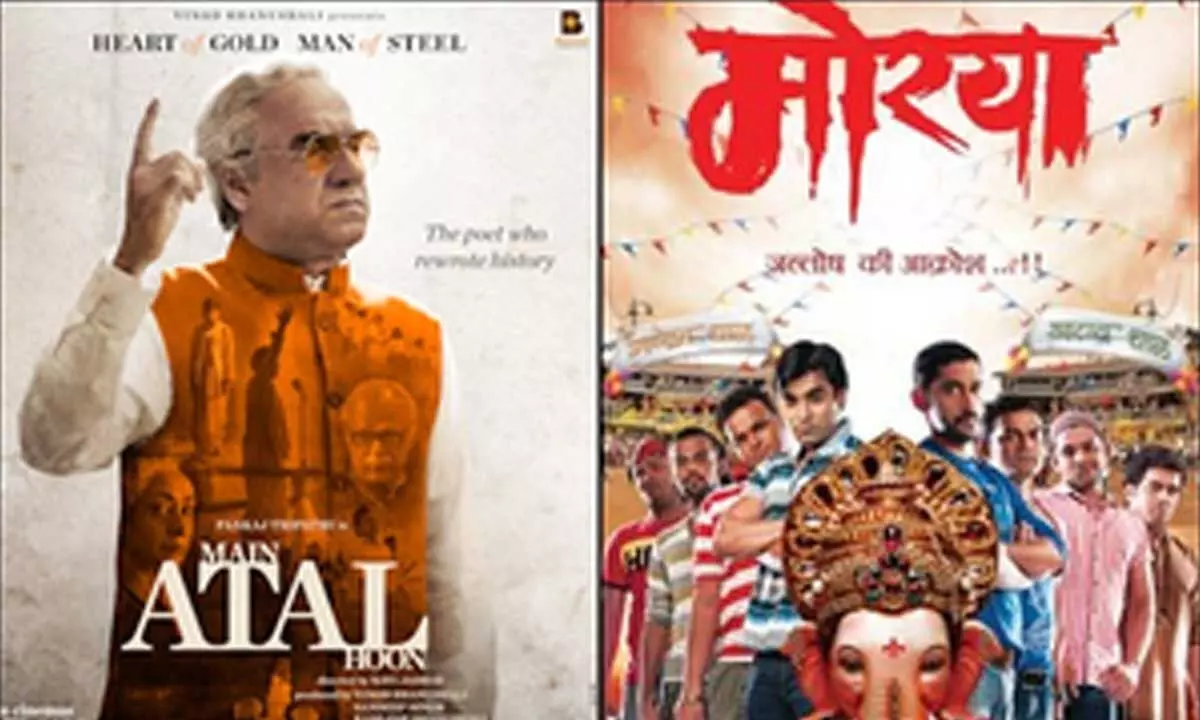
Is the Central Board of Film Certification (CBFC) a single-window clearance system for certifying feature films, which is mandatory before a film is released for public exhibition?
Mumbai: Is the Central Board of Film Certification (CBFC) a single-window clearance system for certifying feature films, which is mandatory before a film is released for public exhibition?
Unfortunately, for the filmmakers, the CBFC is indeed a single window clearance point and it is one very crowded place.
Take for example, the Marathi film, 'Morrya', awaiting release for the last many months. The maker's sad story was mentioned in this column earlier when he addressed the media. It was a dramatic press conference because the filmmaker literally cried while sharing his experience with the media.
His story is that the Board is neither issuing a certificate, nor giving reasons for holding up the film because of which it has missed its release date of January 12.
A big lot of films are reportedly stuck with the censors, all awaiting a release. Do the people at the Board know how much it takes to make a film and what kind of interest that the investment generates every month?
The earlier name for the board was the Central Board of Film Censors. Probably, to make it sound relatively less restrictive, the name was changed to Central Board of Film Certification. One would assume that it was a formal affair like you present a film to the certifying body and they issue a certificate in a matter of a day or two. Ironically, that certification is like a mirage now.
A business-like work system prevailed at the Censors where there was a price tag on everything from getting a screening date to obtaining a certificate. The stipulated censor charges, however, were never enough to get through the process. No, it was not all that simple.
A producer, who was at the end of his spending power after completing his film, was made to pay in cash extra amounts (so much for demonetisation and getting rid of black money!). This is one place where the UPI mode of payment held no meaning.
Thanks to a filmmaker from the South, this racket was exposed. To be true, this parallel economy at the censors has been at work since its inception and it was an accepted norm.
But it never meant holding a film's release to ransom. That is what was done with the film of this maker from the South and he spilled it all out to the media.
That was followed by a chorus with affected filmmakers pointing to corruption at the Board. The fact as it came out was that the producers had to deal with middlemen operating out of the Board's office. Instead, it should have been the officers attending to the applicants.
A list of uncleared films was added up and the filmmakers were not able to either adhere to their planned release, or be in a position to even announce them.
So, what did the ministry do? They changed the faces at the Board. The ministry removed the CEO and the Regional Officer (RO). Has it helped?
Not at all. The films presented for the Censor Certificate are now not even listed for examining committee screenings, let alone get clearance. Release plans are going haywire and also suffering are the cinemas.
The Marathi film 'Morrya' has not been granted a screening date for over two months and even 'Main Atal Hoon', a biopic on the late Prime Minister and BJP stalwart Atal Bihari Vajpayee, though slated for release on January 19, got the certificate only on the 17th!
If the ministry believes that corruption has been ruled out (!) by replacing the officers, the screenings are still not being streamlined. How is that explained? The new officers are getting the hang of the process! Imagine, it has been a few months now!
The Government has this policy where officers are transferred every three years or so. And, as it happens, the transfer is to a new department of which they have no clue! Eventually, no officer is a veteran of any task or department. In such an event, they have to outsource their duties to middlemen, who in turn start using the Board office as their personal domain.
But the problem that still persists is that none of the officers responsible for running the system is willing to face the applicants! So, if not the middlemen, it will be the junior staff.
When the film industry saw that the matter was getting out of hand, one of the four film producers' bodies, the Indian Motion Pictures Producers' Association (IMPPA), decided to make a representation to the Chairman, Prasoon Joshi.
So, what happened? The IMPPA representatives discussed various urgent and other problems faced by producers. The outcome? The delegates returned with assurances and some pictures clicked with the chairman for keepsake!
Government officers are masters of giving assurances. The pictures with the chairman were a bonus. The press note issued by the IMPPA makes no mention of a particular problem or films being discussed.
The production body was more aggressive in their approach when Pahlaj Nihalini, one of their own, was the Chairman of CBFC. They took a morcha to the CBFC office. That shows the internal politics and jealousies within the industry and the reason why delegations usually return with assurances!
They are in awe of the CBFC and avoid facing it. And that is one of the reasons why the system of middlemen has mushroomed.
In the bygone era, filmmakers announced the release dates of films only after they were issued a censor certificate, lest they hurt the egos of those concerned.
Now, filmmaking is more organised and the release dates are announced while a film is launched so as to catch a certain festival period.
The ideal situation would be for the Board to clear a film within a stipulated period unless there is an issue with objectionable content.
The CBFC clearance should not be a stumbling block for the filmmaker. Pass the film or reject it, but do it in time. Don't make a producer wait endlessly for the screening date at the Board.
That way, the Prime Minister Narendra Modi advocating single window, fast processing will mean something.









